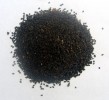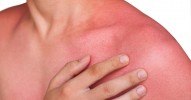What should BP, sugar, asthma patients do in summer

May 8, Kathmandu.In summers, your mouth often gets dry. If you walk a little or climb stairs, you feel tired and weak. Such symptoms are natural due to the increase in temperature in summers. If you are healthy, then these problems seem normal, but do you know that if someone has high blood pressure, diabetes, arthritis or asthma, then their problems can increase further in summers.
Due to the increase in temperature in summer, there is a fluctuation in blood pressure. Blood sugar increases rapidly. Joints get swollen and breathing becomes difficult. To deal with this, doctors sometimes change the dosage of medicines.
What problems do BP patients face due to increasing heat?
Increasing heat can cause many problems for BP patients. When the environmental temperature rises, the body tries to vasodilate to keep itself cool. This can lead to low blood pressure.
Problems for BP patients:
Low blood pressure (Hypotension) : Due to sweating in summer, the lack of water and minerals in the body can cause low BP. This can cause problems like dizziness, vertigo and fatigue.
High Blood Pressure (Hypertension ): Due to excessive heat, the body has to work harder to deliver blood to all the organs, which can increase BP. The mineral balance of the body can get disturbed due to sweating, which can increase BP.
What problems do diabetic people face due to increased heat?
Heat not only brings changes in the weather, it also affects diabetic patients. Especially when the temperature goes above 35°C, the metabolism inside the body also starts changing. Due to heat, dehydration increases in the body, which affects the sugar level.
Problems for diabetic people:
Hypoglycemia (Low Blood Sugar): If the body loses water due to sweating, insulin can cause a sudden drop in blood sugar, leading to weakness, dizziness, and headache.
Hyperglycemia (High Blood Sugar): Blood sugar level may increase due to loss of electrolytes due to sweating and not having the right dosage of medicines as per the season.
What problems do asthma patients face when the heat increases?
As the heat increases, air quality, humidity and allergen levels can be affected. This can be a trigger point for asthma patients. When the temperature rises above 35°C, the pollutants and allergens present in the air become more active, which can increase inflammation and contraction in the respiratory tract.
Problems for asthma patients:
1. Bronchoconstriction
When humidity increases with heat, the amount of oxygen in the air decreases and the moisture increases. This causes the airways of asthma patients to shrink, which can cause problems like shortness of breath, cough and chest tightness.
2. Effect of allergens and pollutants
In summer, the amount of dust, pollen, ozone and other allergens in the air increases. These are the triggers of asthma and with increased exposure, the chances of an attack increase manifold.
3. Heat induced aspiratory distress
In extreme heat, the body overheats and breathing becomes faster. In asthma patients, this puts stress on the respiratory tract, which can cause a feeling of suffocation.
4. Decreasing effect of inhaler or medicine
Some inhalers need to be stored in a cool place. Improper storage in the heat can reduce the potency of the inhaler.
What problems do arthritis patients face due to increased heat?
Heat has a direct impact on the body's joints. Especially those who are suffering from osteoarthritis, rheumatoid arthritis or other inflammatory joint diseases. As the weather gets hot, the hydration level, blood circulation and electrolyte balance within the body starts changing. This can affect joint pain, stiffness and swelling.
Problems faced by arthritis patients in summer:
Symptoms may worsen
Heat can trigger inflammation in the body, which can suddenly increase joint swelling and pain. This change is especially seen in rheumatoid arthritis.
2. Dehydration and lack of electrolytes
In summer, essential electrolytes like sodium and potassium are removed from the body through sweat. This can cause muscle cramps, joint stiffness and weakness.
7 important tips for prevention and caution
1. Drink plenty of water and avoid dehydration
- Make sure to drink 2.5 to 3 liters of water throughout the day.
- Sweat removes electrolytes – drink fluids like coconut water, ORS or lemon water.
- Avoid drinking caffeine, soda, and sweetened drinks.
2. Keep medicines and insulin at the right temperature
- Store insulin in a refrigerator between 2°C and 8°C.
- Do not allow inhaler or BP medicines to come in contact with direct sunlight or heat.
3. Keep the body cool
- Wear light cotton clothes.
- Avoid going out between 11am and 4pm.
- If you have to go out, use a hat, umbrella or sunscreen.
4. Pay attention to your diet
- Eat light, easily digestible and home-cooked food.
- Eat less salt and low carbs-fat food.
- Include anti-inflammatory foods like turmeric, ginger, omega-3 rich foods like flax seeds, walnuts in your diet.
5. Physical activity is important
- Do light stretching or walk in the morning or evening, so that stiffness of the joints does not increase.
- Too much exercise can cause fluctuations in BP or blood sugar. So maintain balance.
6. Control humidity and allergies
- Keep the filters of AC or cooler clean in the house.
- Asthma patients should avoid dust, sunlight and direct fan air.
- Black tea or lukewarm water provides relief from sore throat.
7. Keep monitoring your health
- BP patients should monitor their BP daily.
- Diabetes patients should check their sugar level 2–3 times a day.
- If you are having trouble breathing or suddenly feel tired, dizzy, or have chest tightness, consult a doctor immediately.
Share this with your friends:
प्रत्येक महिला पुरुषभन्दा कमजोर छैनन् : कमला भासिन
 नरेश ज्ञवाली ►
भदौ २७, काठमाडौं। दक्षिण एसियामा लैङ्गिक समानता, शिक्षा, गरिबी निवारण, मानवअधिकार र शान्तिका...
नरेश ज्ञवाली ►
भदौ २७, काठमाडौं। दक्षिण एसियामा लैङ्गिक समानता, शिक्षा, गरिबी निवारण, मानवअधिकार र शान्तिका...
पुरुष कलमले पूर्ण नारीलाई लेख्न सक्दैन
 काठमाडौं। मान्छेहरू कडा भएर बोलेको भन्दा नरम भएर बोलेको मनपर्छ । खरा कुराभन्दा नरम, सरस र सलिल कुराहरू मनपर्छ । तर...
काठमाडौं। मान्छेहरू कडा भएर बोलेको भन्दा नरम भएर बोलेको मनपर्छ । खरा कुराभन्दा नरम, सरस र सलिल कुराहरू मनपर्छ । तर...
कालो तिलले कम्मर दुखेको र अनुहारमा भएको पोतोको उपचार गर्छ
 काठमाडौं । कालो तिल अथवा तिलबाट प्राप्त हुने बिऊ तेल उत्पादनको लागि प्रयोग गरिन्छ । अनुहारमा चायाँ, पोतो वा दाग,...
काठमाडौं । कालो तिल अथवा तिलबाट प्राप्त हुने बिऊ तेल उत्पादनको लागि प्रयोग गरिन्छ । अनुहारमा चायाँ, पोतो वा दाग,...
दुबईमा पहिलो पटक नेपाली कल्चरल पहिरनको फेसन शो सम्पन्न
 काठमाडौं। गत माघ २८ गते दुबईमा नेपाली कल्चरल पहिरनको फेसन शो पहिलो पटक फेसन फ्युजन २०१७ सम्पन्न भयो । एनआरएन...
काठमाडौं। गत माघ २८ गते दुबईमा नेपाली कल्चरल पहिरनको फेसन शो पहिलो पटक फेसन फ्युजन २०१७ सम्पन्न भयो । एनआरएन...
उमेर अनुसारको हुनुपर्छ खान्की, अनि मात्र मानिस स्वस्थ रहन्छ
 काठमाडौं। पोषणको आवश्यकता उमेरअनुसार परिवर्तन हुन्छ । उमेरको हरेक अवस्थामा स्वयंलाई स्वस्थ राख्न शरीरलाई...
काठमाडौं। पोषणको आवश्यकता उमेरअनुसार परिवर्तन हुन्छ । उमेरको हरेक अवस्थामा स्वयंलाई स्वस्थ राख्न शरीरलाई...
मुलुकका सम्मानित पदमा महिलाको उपस्थिति, सबैका लागि आशाको ढोका उघारे
 काठमाडौं। अहिले नेपालका तीनवटै अंगका प्रमुख महिला भएकाले नेपाली राजनीतिक क्षेत्रमा मात्र नभएर सामाजिक...
काठमाडौं। अहिले नेपालका तीनवटै अंगका प्रमुख महिला भएकाले नेपाली राजनीतिक क्षेत्रमा मात्र नभएर सामाजिक...
यी भोजन खाए छाला सुन्दर हुन्छ !
 काठमाडौं। स्ट्रबेरी : यो भिटामिन सीले भरपुर हुन्छ । भिटामन सीले छालालाई चाउरीबाट जोगाएर सधैं जवान राख्न मद्दत...
काठमाडौं। स्ट्रबेरी : यो भिटामिन सीले भरपुर हुन्छ । भिटामन सीले छालालाई चाउरीबाट जोगाएर सधैं जवान राख्न मद्दत...
लोग्नेमान्छेको जात केटी देखेपछि.....
 काठमाडौं । शान्ताको विवाह भएको पाँच वर्ष बितिसक्दा पनि छोराछोरी भएनन् बरु उनलाई एकाएक ब्लड क्यान्सर भयो । समयले...
काठमाडौं । शान्ताको विवाह भएको पाँच वर्ष बितिसक्दा पनि छोराछोरी भएनन् बरु उनलाई एकाएक ब्लड क्यान्सर भयो । समयले...
मनोसामाजिक समस्या के हो?
 साउन ११, काठमाडौं । मनोसामाजिक समस्या भन्नाले मन र समाज वीच हुने समस्या हो । यो जो कोही व्यक्तिलाई पनि हुन सक्छ ।...
साउन ११, काठमाडौं । मनोसामाजिक समस्या भन्नाले मन र समाज वीच हुने समस्या हो । यो जो कोही व्यक्तिलाई पनि हुन सक्छ ।...
महिलाको दोस्रो विवाहको कुरा सुन्दा पढेलेखेकैले अनुहार बिगार्छन्
 काठमाडौं। दोस्रो विवाहबारे मैले नसोचेको, नचाहेको होइन । तर, म मेरा आत्मीयसँग फेरि विवाह गर्नेबारे कुरा गर्छु,...
काठमाडौं। दोस्रो विवाहबारे मैले नसोचेको, नचाहेको होइन । तर, म मेरा आत्मीयसँग फेरि विवाह गर्नेबारे कुरा गर्छु,...










